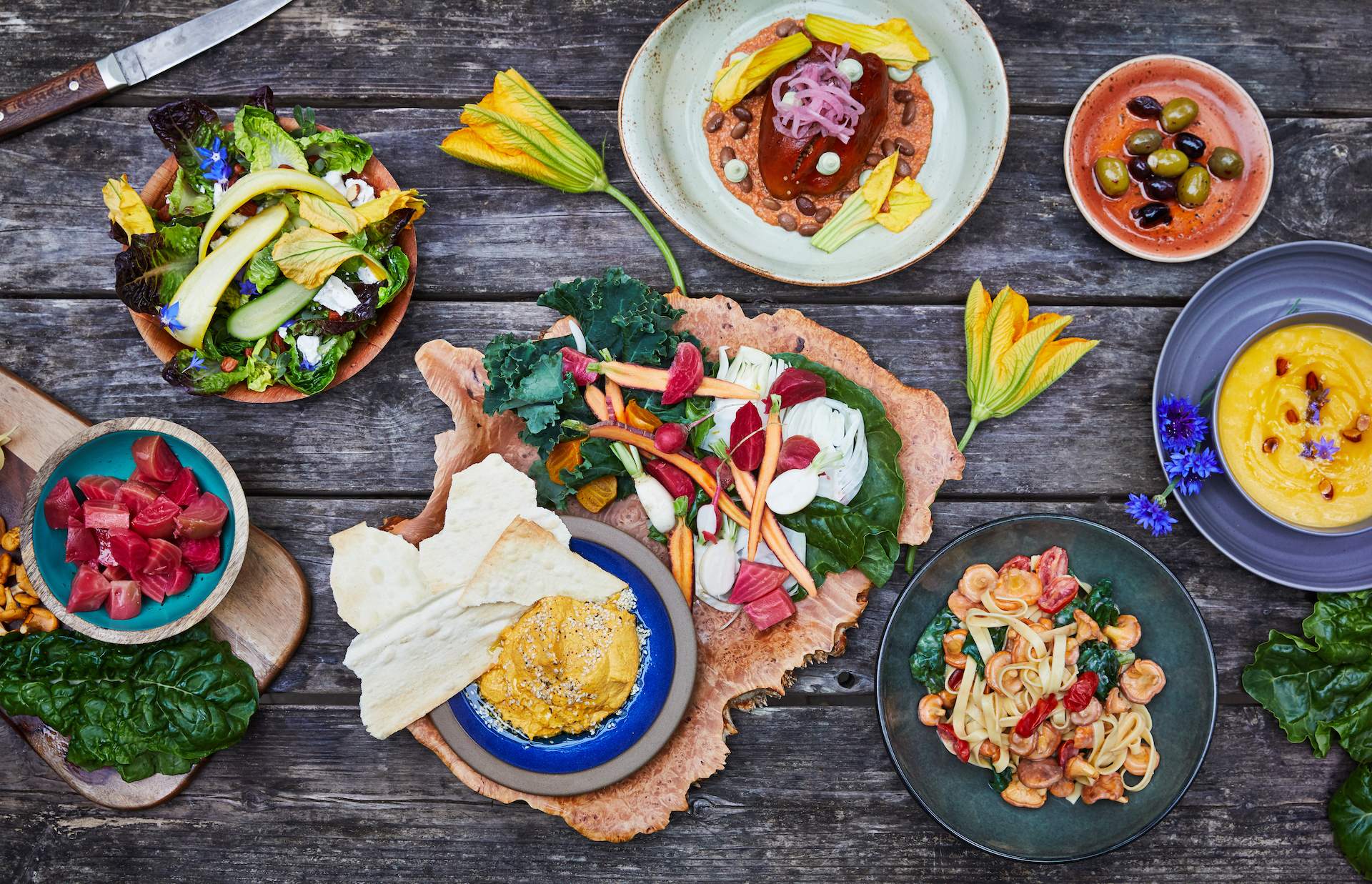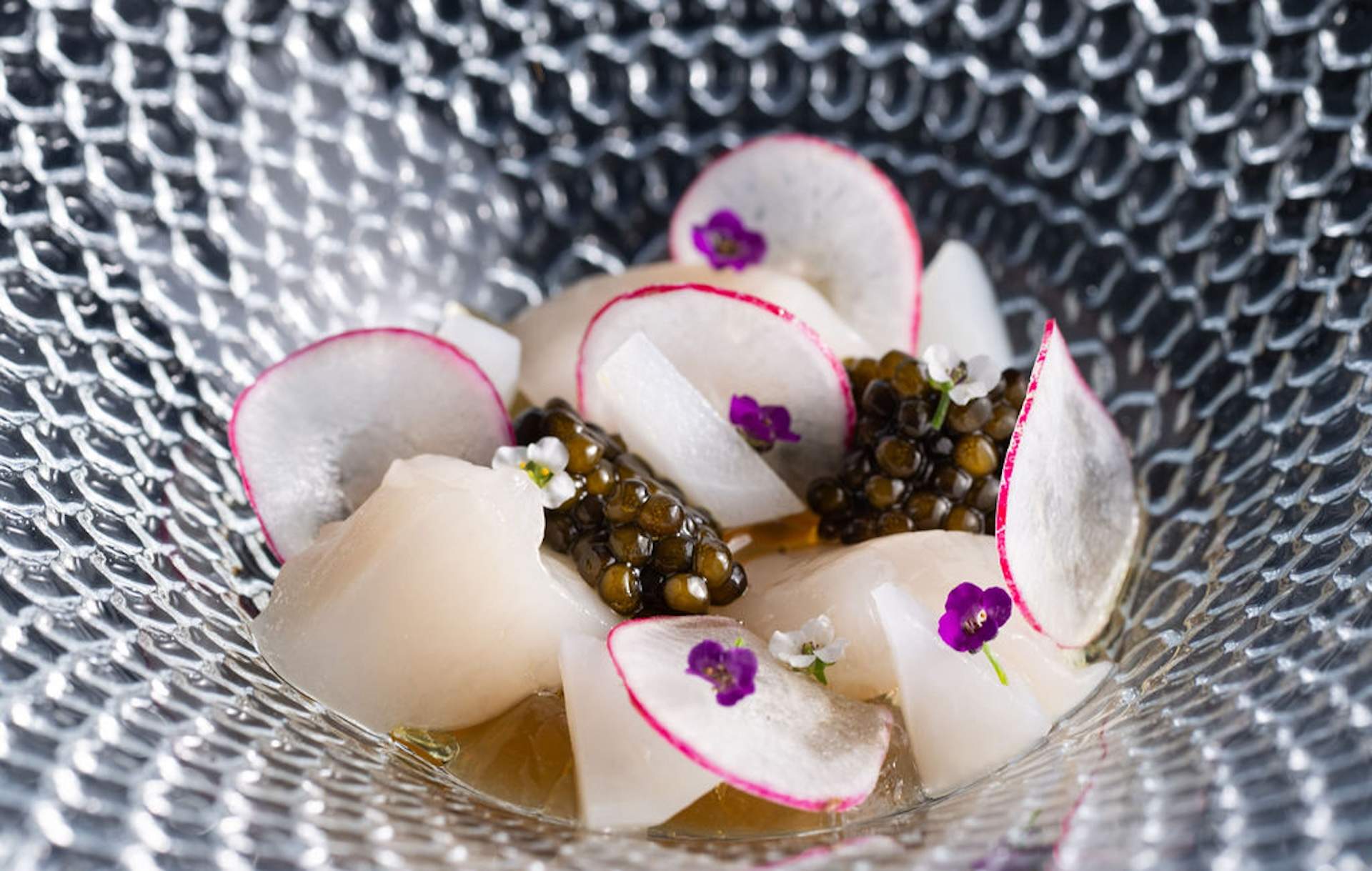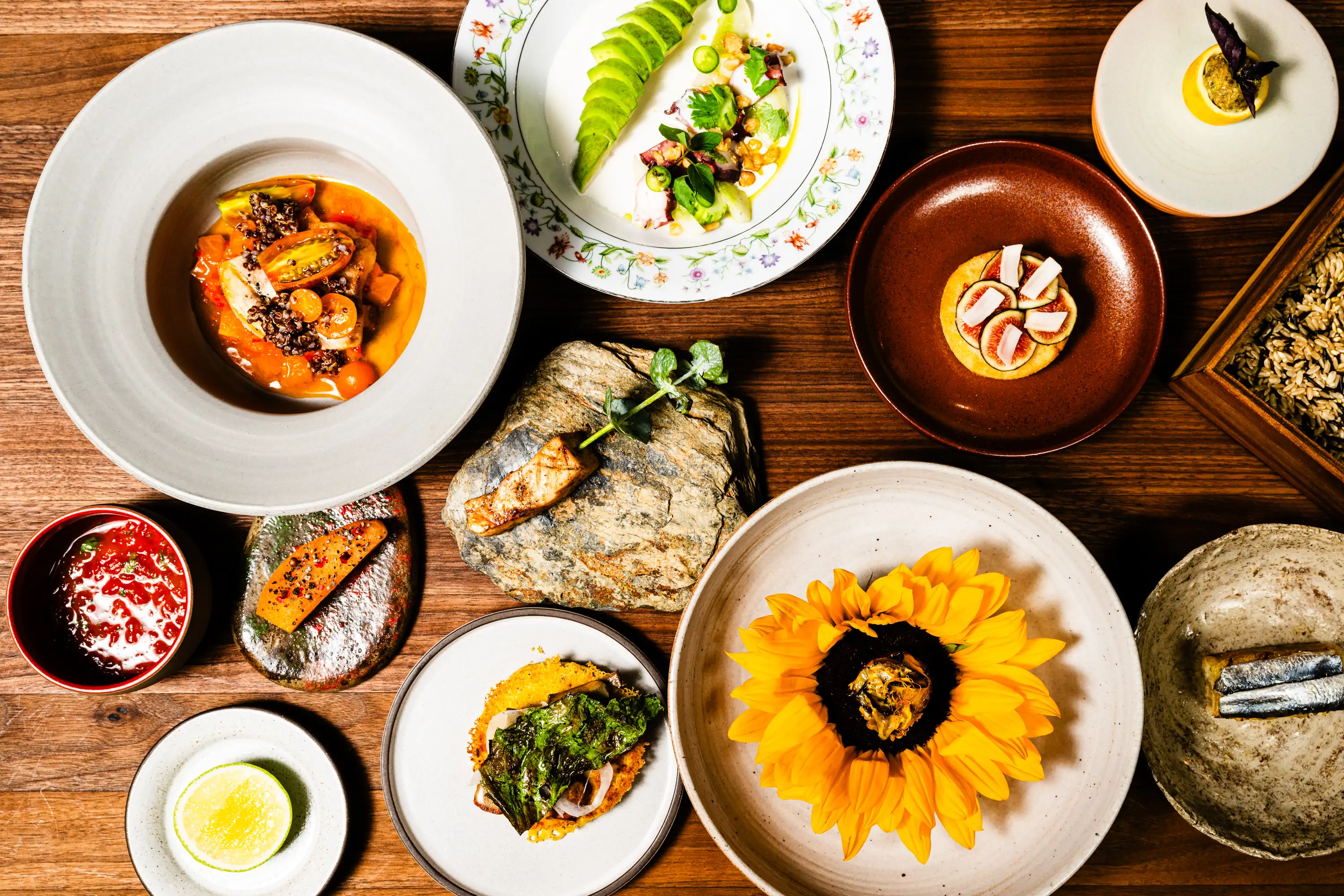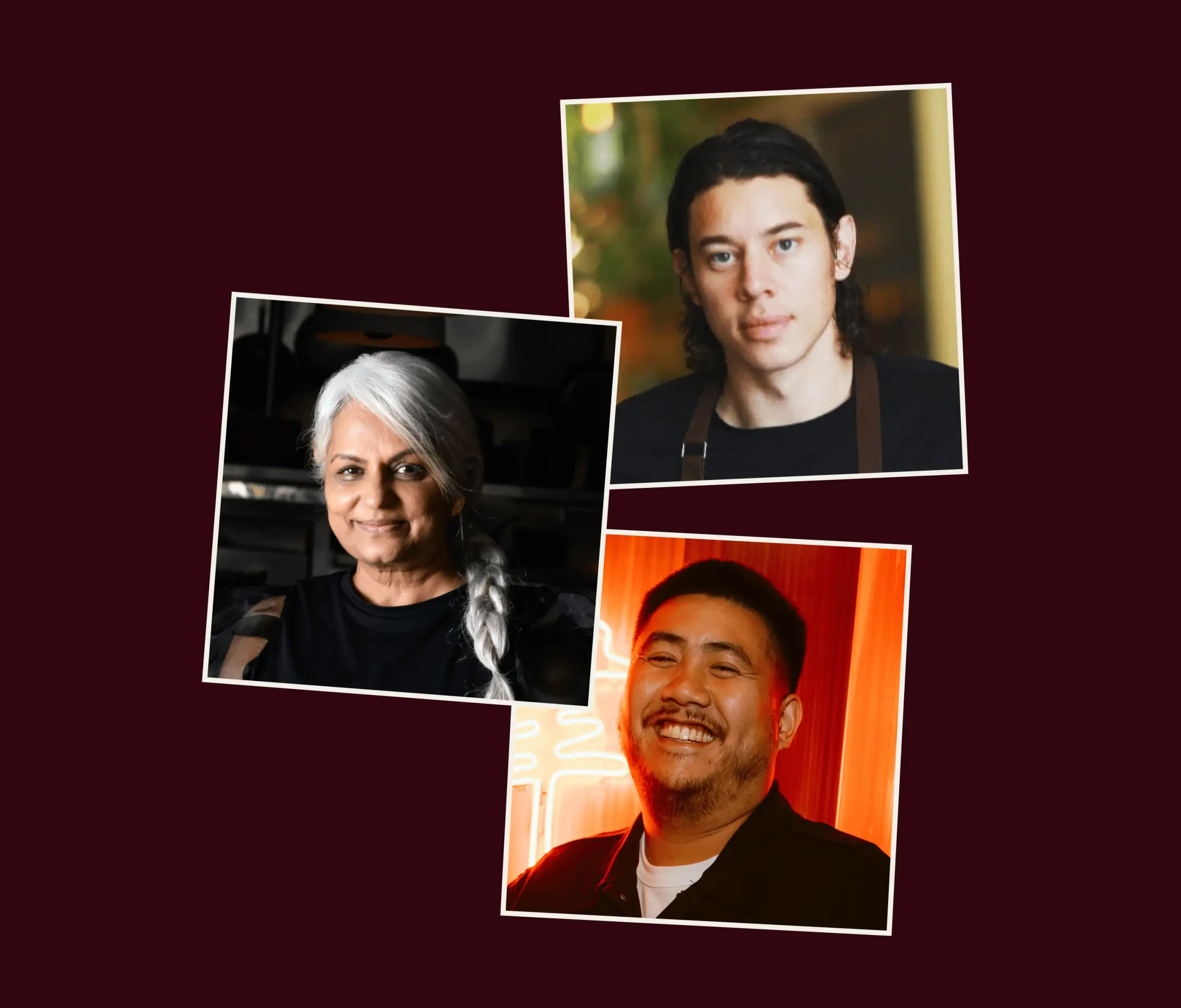Among the agricultural riches of the Bay Area, many restaurants claim to be farm-to-table. But in a region that trailblazed the concept for the country, serving sustainability means more than name-dropping the chef’s favorite carrots.
These three restaurants go deeper than most by growing their own baby lettuces, celebrating our local oysters, and shaking seasonal cocktails for good causes. Because they know that Bay Area diners care about where their food comes from—and can taste the difference.
Seasonal vegetables at Greens Restaurant (San Francisco)

Decades before chefs at MICHELIN-starred spots bragged about cutting meat from the menu, this original earth mama was the first fine-dining vegetarian restaurant in the country. Since opening in 1979 by the San Francisco Zen Center, the team has pulled sweet baby lettuces and tender herbs from its own 8-acre Green Gulch Farm just across the Golden Gate Bridge.
Chef Katie Reicher continues the legacy today. There’s always something from Green Gulch on the menu, but she also works directly with farmer friends who drop off right at the kitchen door. She changes the menu twice a month, always adjusting for availability.
Reicher is into whole-vegetable cooking, keeping the stems and leaves on cauliflower and sinking pea pods into stock. And no matter how trendy, she refuses to serve processed fake meat, so no Impossible or Beyond here.
“We just want to be gracious and generous to our guests, while celebrating what comes directly from the earth,” Reicher says. “We’re committed to our core values of pulling straight from the earth.”
In an era when many restaurants are jumping on “climate-conscious” or “plant-based” trends, Greens refuses to treat sustainability like a fad.
Sustainable oysters at The Shuckery (Petaluma)
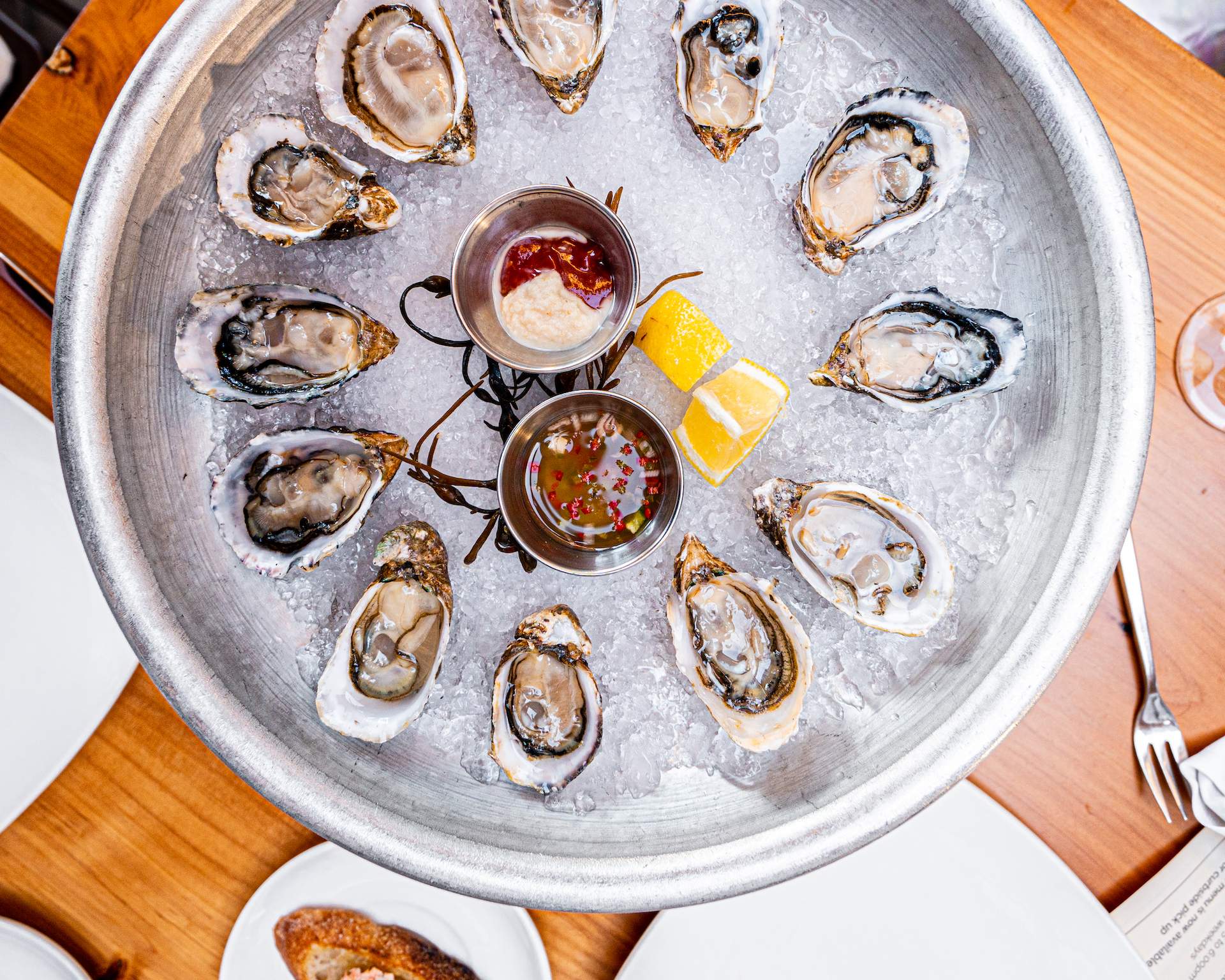
Sisters Jazmine and Aluxa Lalicker were born in Mexico and grew up in landlocked Oklahoma. Then they came to Northern California and became oyster-obsessed.
The obsession started when older sister Aluxa moved to California and the opening of her event business, The Oyster Girls, in 2007. Early on, she led kayak tours in Tomales Bay and took detours into local oyster farms by popular demand. Jazmine moved out here as well, and at one point the sisters harvested their own oysters from paddleboards.
Jazmine opened The Shuckery in downtown Petaluma in 2016, which now serves local oysters—including several varieties of Miyagis and Kumamotos—and West Coast rockfish in ceviche and tacos.
The restaurant is enrolled in Zero Waste Sonoma to help reduce landfill and composts all of their oyster shells. The whole restaurant produces only one black bag of trash a night.
Jazmine takes The Shuckery team to visit Tomales Bay or Hog Island oyster farms at least once a year to learn about how filter feeders like oysters help clean our bays.
“The oyster is a sign of health. A good way to think about it is kind of like the canary in the coal mine,” Jazmine says. “If you can’t grow oysters, you definitely don’t have a healthy body of water.”
Cocktails for a cause at Gather Kitchen (Berkeley)
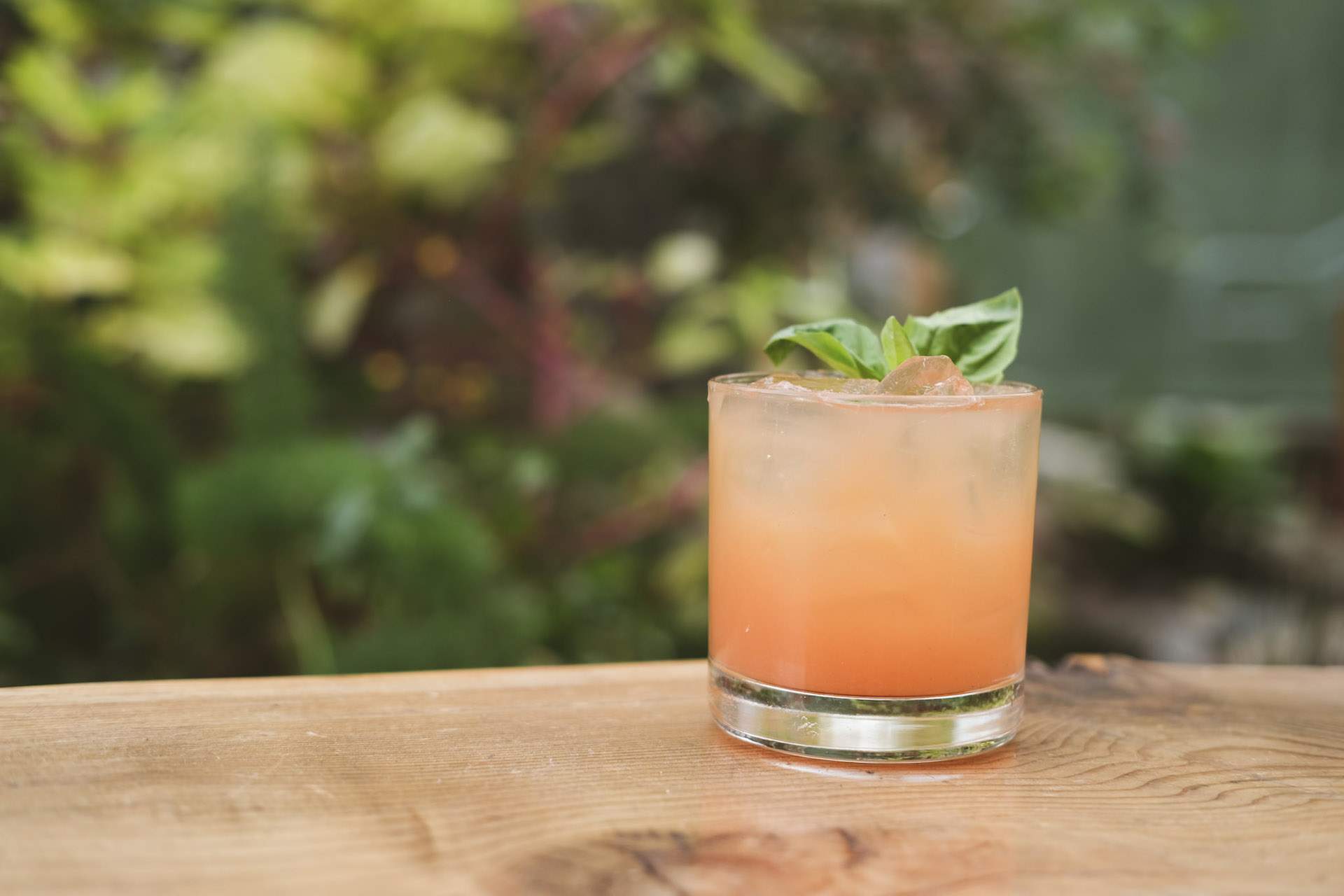
When environmental arts and activism space David Brower Center in downtown Berkeley looked for a restaurant partner, Eric Fenster was a natural fit. His street cred included teaching at Edible Schoolyard (the education nonprofit founded by Alice Waters of Chez Panisse) and trailblazing as a vegetarian caterer. He opened Gather in 2009 on the ground floor of the green building.
Gather Kitchen serves an omnivorous but conscientious menu: Ingredients are local and organic, down to the finest herbs. Dishes swap out every two months following the microseasons. Diners love the woodfired pizzas, including the popular spicy tomato pie, which happens to be vegan. But you can also order a juicy burger featuring grass-fed beef from Marin Sun Farms.
That same attention to detail shakes all the way through to the drinks, and the bar has brought back a program called Cocktails for Change. A portion of the proceeds from a couple of specialty cocktails go to a good cause. If you order the Guava Mule (vodka, guava, lime, basil), donations go to Movement Generation, an environmental justice nonprofit that works to restore land to communities of color. Or sip the Lavvy Lemon (gin, honey, lavender, lemon) to benefit the Sacred Land Film Project, a media organization that helps share indigenous stories.
While many restaurants prominently feature organic proteins and vegetables, it’s impressive to see that commitment run all the way through the cocktail menu, not to mention making raising a glass an opportunity to give back.
Becky Duffett is a food writer living and eating in San Francisco. Follow her on Instagram.

